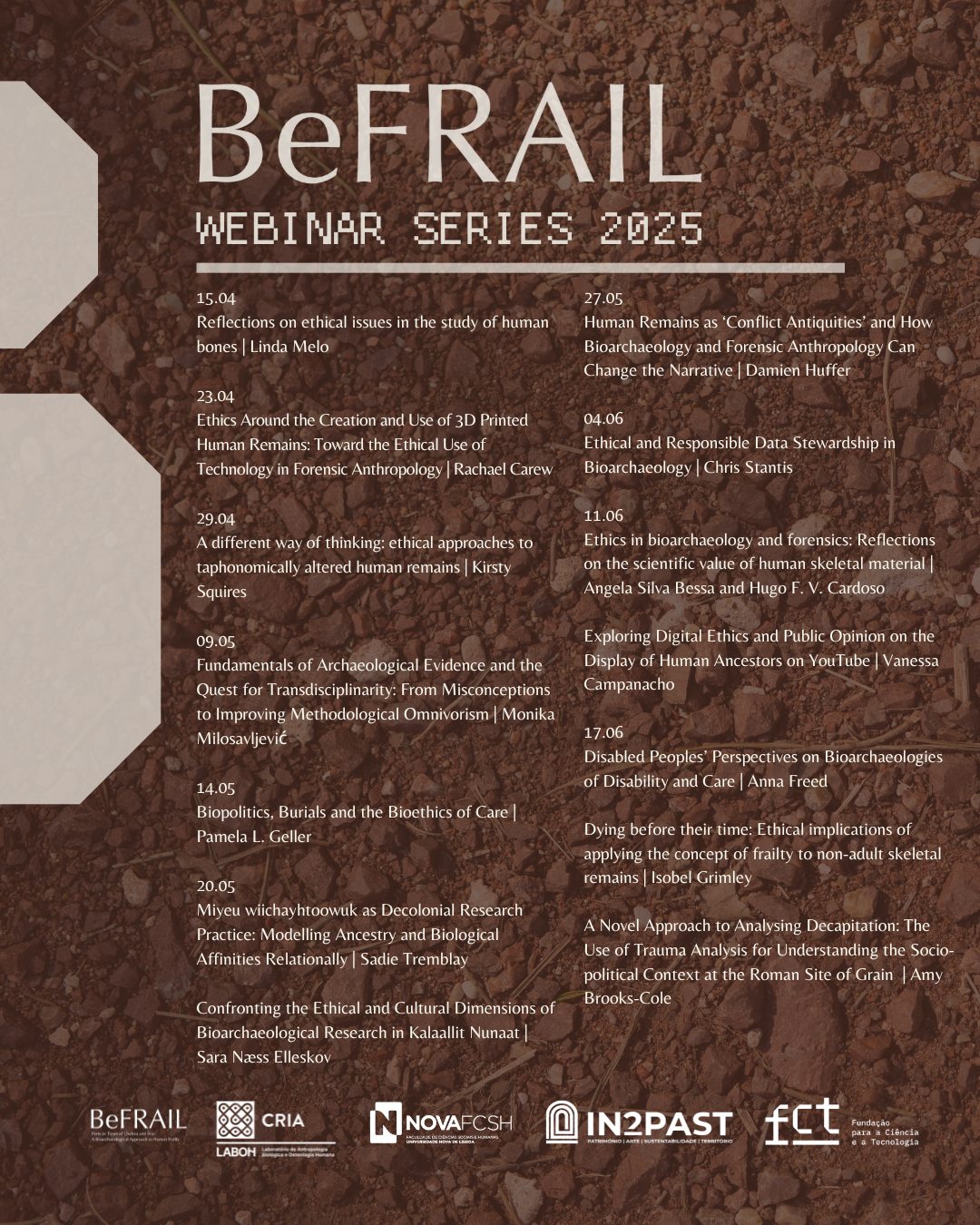The second webinar series of project BeFRAIL – Porto in Times of Cholera and War: A Bioarchaeological Approach to Human Frailty, covering topics on the ethical considerations and social impacts within bioarchaeology and biological anthropology, takes place from April 15th until June 17th, 2025.
This year, an open call for contributions was launched, to encourage early career researchers to share their research and its ethical and social dimensions, adding to the programme of invited speakers. Topics in April include ethical issues regarding the study of human bones (Linda Melo, on the 15th), the creation and use of 3D printed human remains (Rachael Carew, on the 23rd) and taphonomically altered human remains (Kirsty Squires, on the 29th).
Participation in the webinars, organised by a team of CRIA’s Laboratory of Biological Anthropology and Osteological Human Remains (LABOH) researchers, is free but subject to registration.
Foreseeably running until the end of February, 2026, project BeFRAIL is led by CRIA – NOVA FCSH / IN2PAST researcher Francisca Alves Cardoso. It aims at an holistic and transdisciplinary approach to human frailty in the past, through the assessment of an archaeological site related to the Third Order of Our Lady of Mount Carmel (Ordem Terceira de Nossa Senhora do Carmo) in Porto, Portugal, in use between 1801 to 1869: years of cholera and war.
After last year’s and first webinar series, a total of ten sessions is programmed for 2025. Check the preliminary programme with all dates (opposite and in PDF).
Project BeFRAIL is funded by FCT – Fundação para a Ciência e a Tecnologia, I.P. under reference 2022.02398.PTDC (DOI 10.54499/2022.02398.PTDC)
Contact: befrail@fcsh.unl.pt
